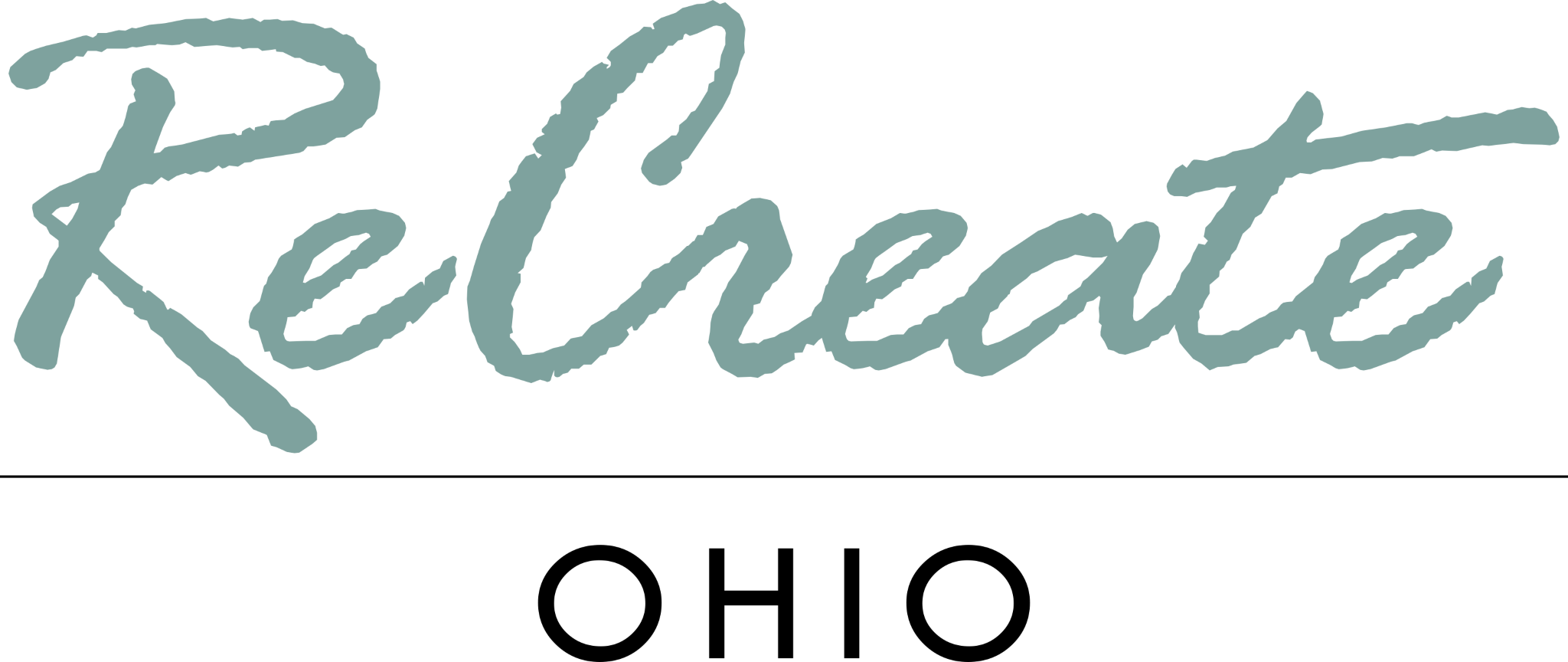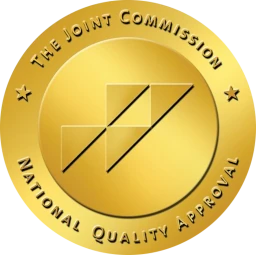Treating Alcoholism
Treating alcoholism starts with knowing your options and taking the first step toward recovery. Recreate Ohio outlines the practical steps and treatment modalities that address alcohol use disorder, offering hope and a way out of addiction’s grip. With evidence-based therapies, support networks, and professional guidance, reclaiming your life or assisting a loved one is possible—learn how to start.
Brief Overview
Alcohol Use Disorder (AUD) is a complex spectrum condition that goes beyond excessive drinking, encompassing various alcohol-related problems, and often requires the observation of family and friends to recognize and admit the need for help.
Recreate Behavioral Health of Ohio provides personalized and comprehensive alcoholism treatment, including detoxification, residential and intensive outpatient programs, behavioral therapy, and FDA-approved medications to address the multifaceted aspects of recovery.
Long-term recovery is supported by a strong network that includes family involvement, group therapy, addressing co-occurring mental health issues, a healthy lifestyle, and the involvement of primary care doctors and health care professionals.
Recognizing Alcohol Use Disorder

Alcohol use disorder is an often misunderstood condition, cloaked in the misconception that it’s simply about alcohol consumption. However, AUD is far more complex, a spectrum that ranges from the occasional overindulgence to an alcohol dependence. It’s important to recognize that alcohol abuse, alcoholism, and various other alcohol related problems, including alcohol misuse and liver disease, fall under the broad canopy of AUD. Understanding this wide scope is the beginning towards acknowledging that a problem exists and that help might be necessary.
Spotting the warning signs can be challenging, especially when denial is prevelant. Alcohol use disorders manifest in many forms—an inability to control drinking, persistent cravings, and the prioritization of alcohol over other important aspects of life. Family and friends are often the first to notice these signs, witnessing the subtle yet significant behavioral and routine changes that hint at AUD.
Left unchecked, AUD can derail one’s ability to function daily, leading to severe health complications and a disruption of social and occupational responsibilities.
The Path to Acknowledging the Need for Help
For many, admitting the need for help is a monumental hurdle, yet it’s one that must be overcome to start process to sobriety. The support of loved ones, friends, and sometimes employers often serve as the catalyst for this realization. When friends and family rally around, expressing concern and offering unwavering support, they make the path to treatment easier to accept. This support gives an individual struggling with AUD that may have been apprehensive a helping hand and the knowledge they are not alone.
Acknowledgment often comes through the gentle persuasion of those who care, leading to the life-changing decision to seek treatment. It’s a can be turning point, opening the door to recovery and the hope of a life where alcohol no longer causes problems. This is where the narrative shifts—from the struggle to the solution. And at Recreate Ohio, that solution is comprehensive, personalized, and rooted in evidence-based practices.
Comprehensive Treatment at Recreate Ohio
Recreate Ohio stands located in Franklin County very close to Columbus, OH in the suburb of Gahanna and offers a beautiful treatment center where a person can address their alcoholism, stop drinking, and deal with any related alcohol withdrawal symptoms. Here, each individual is treated with respect. We sit with our patients and together carefully chart out a treatment plan that encompasses both clinical best practices and holistic approaches—all aimed at achieving long-term sobriety. The road to recovery is not without its barriers, but Recreate Ohio is well-equipped to help patients address physical health problems, mental health issues or mental disorders, as well as any financial, legal, or professional consequences from their alcohol use or heavy drinking.

The treatment options are as diverse as they are dynamic, ranging from detoxification to residential programs and intensive outpatient treatments. Each modality is designed to cater to the nuanced needs of individuals at different stages of their life. Recreate Ohio is committed to guiding patients through every level of care, with a particular focus on residential and outpatient services that empower individuals to reclaim control over their lives.
24/7 Confidential Helpline
Residential Treatment: Immersive Care for Recovery
Residential treatment at Recreate Ohio provides more than just a retreat from the world—it offers an immersive environment with healing and growth, with round-the-clock care that’s essential for recovery from alcoholism. Within our facility, residents engage in a blend of:
Addiction education
Life skills training
Holistic care that addresses the whole person—not just the addiction
The residential program is a comprehensive approach that prepares individuals to face their triggers, maintain sobriety, and prevent relapse. The typically lengeth of stay is 20 to 45 days, during which residents immerse themselves in a variety of therapeutic activities, including individual and group therapy, creative workshops, and educational lectures that provide the tools needed for a sober life.
Intensive Outpatient Program: Flexibility and Support
For those whose lives cannot pause for recovery, the intensive outpatient program at Recreate Ohio offers a flexible treatment structure that allows patients to integrate their recovery process into their daily lives. This program enables individuals to maintain their work, school, or family obligations while still receiving the treatment they need to address alcohol dependency.
However, the flexibility of an outpatient program comes with its challenges. The risk of relapse is higher due to the patient’s continued easy access to alcohol. Recreate Behavioral Health of Ohio understands this risk and has structured its outpatient program to provide robust support and resources to mitigate it.
Detoxification: The First Step Towards Sobriety

Detoxification is often the first level of care when treating alcoholism. At Recreate Ohio, this process is designed to safely eliminate alcohol from the body under medical supervision. This is a delicate time when the body begins to adjust to the absence of alcohol, and withdrawal symptoms can emerge. These symptoms can include:
Nausea and vomiting
Sweating
Tremors
Anxiety
Insomnia
Headaches
Irritability
Increased heart rate
Seizures
Withdrawal symptoms can be potentially severe and require careful management.
Medications such as benzodiazepines are often used to mitigate these symptoms and prevent dangerous complications like seizures, especially for those who have experienced them during previous attempts to stop drinking.
Recreate Behavioral Health of Ohio offers the detoxification process in both outpatient and inpatient settings, with a particular emphasis on safety and comfort during this challenging but necessary phase.
Behavioral Therapy: Changing Drinking Behavior
Behavioral therapy is a big part of treatment at Recreate Ohio, focusing on modifying harmful drinking patterns through targeted counseling. Cognitive-behavioral therapy, one of the key methods employed, helps patients identify the emotional and situational triggers that lead to excessive alcohol use and provides strategies to manage stress effectively.
Motivational enhancement therapy complements this by:

Creating a strong desire to change
Equipping patients with the tools to build a plan for sobriety
Eolstering their confidence and skills to avoid relapse
These therapies are instrumental in helping patients develop the continued willingness needed to create health habits and engage in recovery to maintain long-term sobriety.
Approved Medications: Supporting Recovery

To supplement the psychotherapeutic approaches, FDA-approved medications such as Naltrexone, Acamprosate, and Disulfiram offer a pharmacological lifeline to those in recovery. These medications help treat alcohol dependence by reducing the urge to drink and supporting the maintenance of abstinence, serving deterient to quit drinking alcohol. While Disulfiram’s efficacy can be inconsistent, its role in the treatment arsenal should not be discounted.
Moreover, these non-addictive medications can be integrated into a comprehensive treatment plan, playing a valuable role in primary care by aiding in the treatment for alcohol use disorder and in some cases, deterring drinking during times of high relapse risk.
Building a Support System: Group Therapy and Support Groups
Recovery from alcohol often requires a fellowship—a network of individuals who can share, empathize, and empower one another. At Recreate Ohio, there are daily therapeutic groups and access to support groups in the community, providing a setting where individuals can:
Share their experiences
Learn from others
Find their peers in recovery
Break the cycle of isolation
Witness the transformative power of sobriety in their peers
Group therapy helps individuals on their recovery journey by creating a supportive and empowering environment.
Support groups such as Alcoholics Anonymous complement group therapy by providing peer support vital for coping with alcohol problems. They offer a haven for those seeking to either quit or reduce their alcohol intake. This supportive network is especially crucial post-rehabilitation, helping individuals maintain their sobriety in the long term.
Family Involvement: Strengthening Relationships
Family involvement, including the support of family members, can be the turning point in the recovery process, offering valuable support that can improve the likelihood of maintaining abstinence from alcohol in their daily life. At Recreate Behavioral Health of Ohio, therapy with the family is a vital component, aiming to mend the frayed bonds between the patient and their loved ones and establish a healthier, more supportive family dynamic.
These therapeutic interventions draw on the strengths of the family unit, facilitating positive changes and supporting the individual with alcohol use disorder throughout their treatment experience. In scenarios involving spouses, children, or adolescents, therapy with the family becomes even more integral, ensuring that the entire family system is aligned and supportive.
Embracing a Healthier Lifestyle: Aftercare and Maintenance
Long-term recovery from alcoholism extends far beyond the initial treatment phases; it involves embracing a healthier lifestyle that includes regular exercise, balanced nutrition, and sufficient sleep. Establishing a structured schedule helps in achieving life goals and is essential to maintaining sobriety on a daily basis, especially when one decides not to drink alcohol or engage in drinking alcohol.
Altering routines to steer clear of past triggers and incorporating relaxation techniques are proactive measures for sustaining a sober lifestyle. Recreate Ohio also ensures that patients have access to community resources and provides comprehensive discharge planning that includes elements such as sober housing guidance and how to find local support once discharged.
Insurance May Cover All Costs
Recreate Behavioral Health of Ohio accepts most major health insurance benefits and works with insurance providers to help cover the costs of your addiction treatment. We believe that finances should not be a barrier to receiving the life-changing help you deserve, and we offer a seamless process for insurance verification.
- Confidential & Quick
- Professional Guidance
- No Commitment Required

Addressing Co-Occurring Mental Health Issues
The connection between addiction and mental health cannot be overlooked in the treatment of alcohol use disorder. Recreate Ohio employs a dual-diagnosis approach, addressing the mental health issues, including mental illness, that often accompany addiction, such as depression and anxiety. This comprehensive care is critical, as unaddressed mental health problems can hinder recovery and lead to relapse.
Ongoing therapy session individually and with the family at Recreate Ohio are scheduled to help individuals confront and manage these co-occurring challenges.
The Role of Primary Care Doctors and Health Care Professionals
Primary care doctors and health care professionals are often the first to identify signs of alcohol use disorder, setting the stage for a collaborative effort in diagnosing and determining the appropriate treatment. Through a combination of clinical assessments and patient discussions, these healthcare providers play an essential role in identifying addiction and guiding individuals toward recovery.
As central figures in treatment referral, these professionals can:
Guide their patient to a healcare provider like ReCreate Ohio
Provide ongoing support throughout the recovery process
Ensure that individuals have the best chance for a successful outcome once leaving residential treatment
In Closing
It’s clear that overcoming alcohol dependency is a multifaceted process that extends beyond simply abstaining from alcohol. It involves a dynamic combination of recognizing the issue, undergoing detoxification, engaging in treatment at a facility that can treat alcohol use disorder. In addition, building a robust support system and finding support groups that will be available once leaving treatment. Recreate Behavioral Health of Ohio excels in this endeavor, offering comprehensive, personalized treatment and unwavering support every step of the way.
If you or a loved one need help with alcoholism, contact us today and give yourself the promise of a healthier, more fulfilling life.
Frequently Asked Questions
To diagnose Alcohol Use Disorder (AUD), a clinical interview is conducted using criteria outlined in the DSM-5-TR. Affirmatively answering to at least two criteria in the past year may result in a diagnosis.
Recreate Ohio tailors treatment to individual needs by developing personalized treatment plans for each patient, blending evidence-based clinical practices with holistic approaches, and assigning a case manager to help overcome barriers to recovery. This ensures that each individual’s specific needs are addressed effectively.
Naltrexone, Acamprosate, and Disulfiram are approved medications by the FDA for treating alcohol dependence. They are non-addictive and help reduce the urge to drink and support abstinence.
Family therapy can improve recovery outcomes for individuals with alcohol use disorder by involving the family in the treatment process, leading to better outcomes and higher rates of maintaining abstinence, while also helping repair relationships and providing a healthier support structure.
It’s important to address mental health issues in addiction treatment because co-occurring mental health issues can complicate recovery if left unaddressed. Treating both the addiction and mental health issues together improves the chances of successful recovery.






